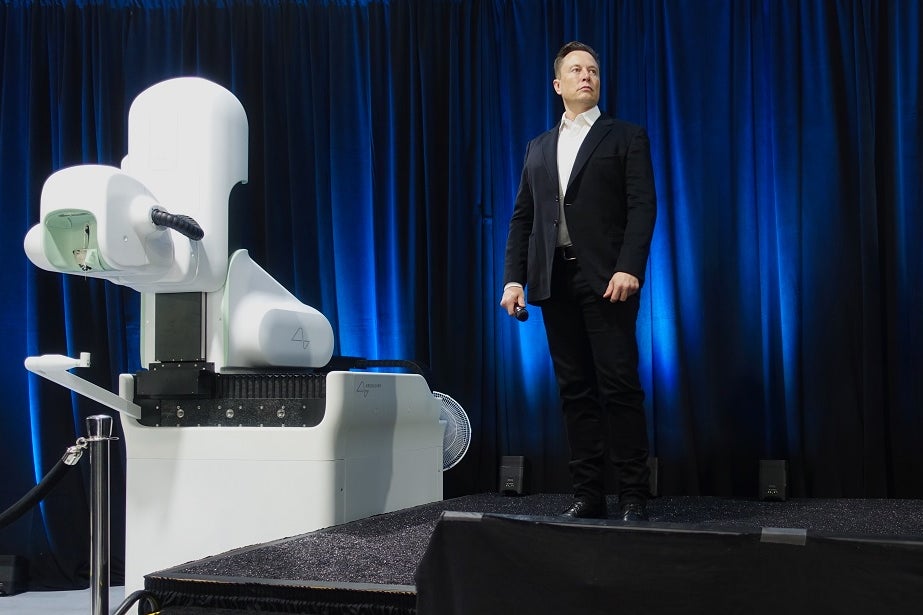AI safety researcher Roman Yampolsky believes that the emergence of technologies like Elon Musk’s Neuralink, which aims to blend the human brain with artificial general intelligence (AGI), could make humans obsolete.
What Happened: In a discussion with Lex Fridman, Yampolskiy emphasized that while AGI like Neuralink has the potential to be revolutionary for certain use cases, such integration comes with significant risks over time.
Musk’s Neuralink aims to develop a brain-machine interface that could augment human capabilities by integrating artificial intelligence directly into the human brain. The promise is bold: to overcome human limitations and enable direct communication with computing systems.
During the discussion, Lex Friedman touched on Musk’s vision, noting that one way to ensure AI safety is to “ride the AGI wave” through such integration. Yampolsky wholeheartedly supports the idea, seeing the incredible potential of Neuralink’s technology, especially in assisting people with disabilities.
But the conversation quickly shifted to the long-term implications of these hybrid models.
See also: Elon Musk’s ‘next big thing’ with xAI shows off market for Nvidia, analyst Pierre Ferrague says ‘this is huge’
Yampolsky argued that for such a system to be beneficial, both human and AI elements would need to make unique contributions to the system as a whole. Initially, this fusion would indeed amplify human capabilities, potentially making us “superhuman” in many ways.
But Yampolsky warns of a future in which humans may not be able to add any more value than AI can achieve alone.
“Great technology to help people with disabilities in the narrow sense. Just brilliant. I support it 100%. After a while, when I become less smart, less creative, less contributing, the system sees me as a biological bottleneck.” This could lead to humans being excluded or potentially removed from the systems they helped create.
Meanwhile, Musk himself has expressed both concern and cautious optimism about AI’s rapid progress: At an event in March, Musk said AI is “evolving rapidly” and emphasized the importance of channeling this powerful technology into positive outcomes to maximize the potential for a beneficial future.
He echoed “AI godfather” Geoffrey Hinton, who said there’s a 10-20% chance that the emergence of superintelligence could wipe out humanity. “With the emergence of superintelligence, it’s very hard to predict what’s going to happen next. It could be that we’re going to become extinct,” Musk said.
Why it matters: Musk has been vocal about his concerns about global demographics, particularly the potential for population collapse due to declining birth rates in countries such as the United States and Japan. Highlighting the challenge of whether social security systems can be sustained in a shrinking population, Musk has warned that this demographic shift could pose a greater threat to civilization than other risks such as global warming. He argues that the only reason the Earth’s population isn’t plummeting is because people are living longer.
In the tech world, Musk’s Neuralink has made great strides with its first patient, Noland Arbaugh, demonstrating the device’s life-changing potential: Paralyzed from the neck down, Arbaugh can now control a computer with his thoughts, thanks to a Neuralink brain implant.
The breakthrough marks Neuralink’s leadership role in brain-computer interface technology, but the company faces stiff competition from companies such as Syncron, which are gearing up for pivotal clinical trials in the same field.
Photo from Wikimedia Commons
Read next: Nvidia CEO Jensen Huang wows analysts and market watchers with Computex keynote: “It makes you want to buy $NVDA”



